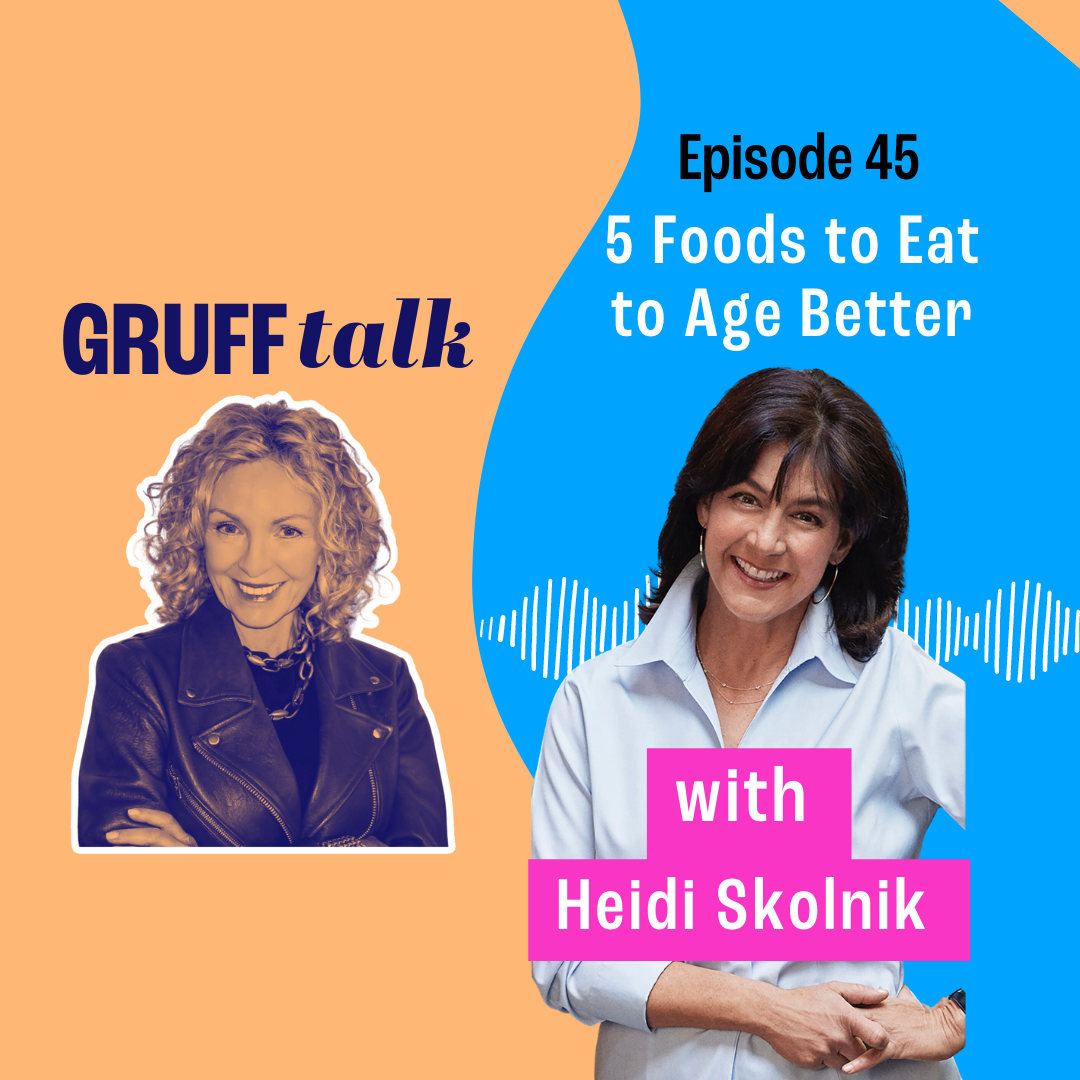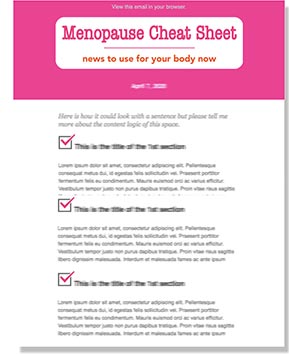Listen to Episode 45 of GRUFFtalk: How to Age Better HERE
Getting older and feeling fit, strong and energetic aren’t mutually exclusive! A few well-chosen habits like moving more, stressing less, and not smoking can do wonders for aging better.
And, what you choose to eat is critical as well.
In this week’s episode of GRUFFtalk: How to Age Better, I spoke with Heidi Skolnik, a nutritionist and co-author of the New York Times best-selling book, “The Whole Body Reset” about the five most important foods we all should have on our plates . . . most days.
It’s a short overview with a fun count-down of the “Top 5” so be sure to take a listen. But in the meantime, here’s an overview of what you should be eating . . . and why.
Although there are many nutrient-rich foods that can support overall health, here are five particularly important ones for aging better:
- Leafy greens: Vegetables like spinach, kale, and collard greens are high in vitamins, minerals, and antioxidants that can protect against age-related diseases, including heart disease and cognitive decline.
- Berries: Blueberries, strawberries, raspberries, and other berries are packed with antioxidants, such as anthocyanins and flavonoids, which help to reduce inflammation and oxidative stress, promoting brain health and reducing the risk of chronic diseases.
- Fatty fish: Salmon, mackerel, sardines, and other fatty fish are rich in omega-3 fatty acids, which can improve heart health, reduce inflammation, and support brain function. Aim to consume at least two servings of fatty fish per week. If fish just isn’t your jam, consider an omega-3 supplement.
- Nuts and seeds: Almonds, walnuts, chia seeds, and flaxseeds are excellent sources of healthy fats, protein, fiber, and various vitamins and minerals. These nutrients help maintain a healthy weight, support brain health, and reduce the risk of heart disease.
- Legumes: Beans, lentils, chickpeas, and other legumes are high in protein, fiber, and various micronutrients. Eating legumes can help maintain muscle mass, support digestive health, and regulate blood sugar levels and they are a great source of fiber.
What about fiber?

Yes, getting enough fiber in the diet is crucial for healthy aging. Dietary fiber plays a significant role in maintaining overall health and preventing age-related diseases. Some of the benefits of consuming adequate fiber include:
- Improved digestion: Fiber helps regulate bowel movements and prevent constipation, which can become more common as people age. Soluble fiber also helps maintain a healthy balance of gut bacteria, which is essential for digestive health.
- Weight management: High-fiber foods can help with weight management by increasing feelings of fullness and reducing overall calorie intake. Maintaining a healthy weight is essential for preventing obesity-related health issues, such as type 2 diabetes and heart disease.
- Blood sugar control: Fiber, particularly soluble fiber, can slow down the absorption of sugar in the bloodstream, helping to regulate blood sugar levels. This can reduce the risk of developing type 2 diabetes or help manage the condition in those who have it.
- Heart health: Fiber can help lower LDL (“bad”) cholesterol levels and reduce inflammation, both of which contribute to a reduced risk of heart disease.
- Reduced cancer risk: Some studies suggest that a high-fiber diet may lower the risk of certain types of cancer, including colorectal cancer.
To ensure you’re getting enough fiber in your diet, include a variety of fiber-rich foods such as fruits, vegetables, whole grains, legumes, nuts, and seeds. Aim for at least 25 grams of fiber per day for women and 38 grams for men, with a gradual decrease in recommended intake as you age (21 grams for women and 30 grams for men over 50).
LISTEN TO THE PODCAST HERE
































































